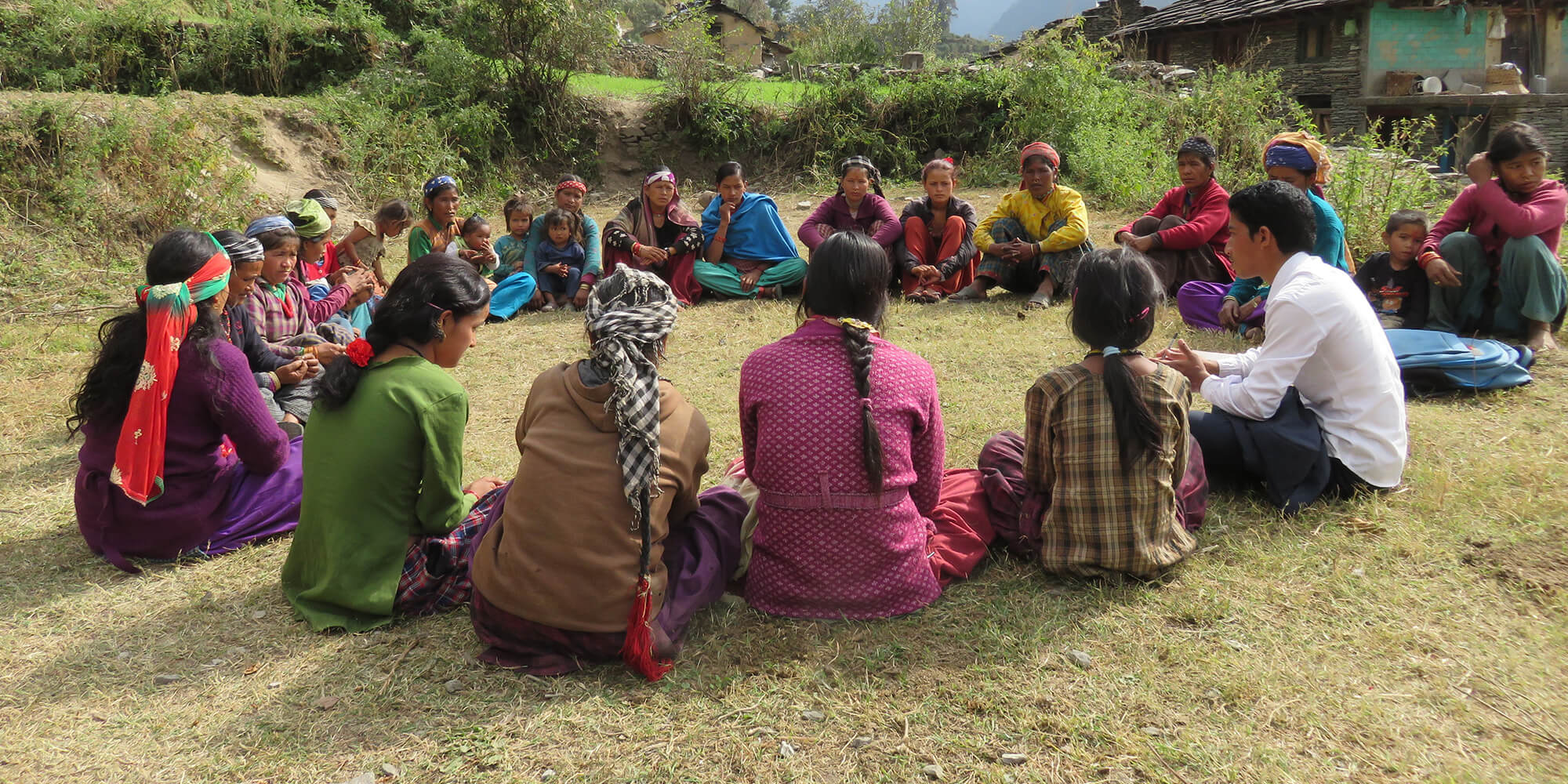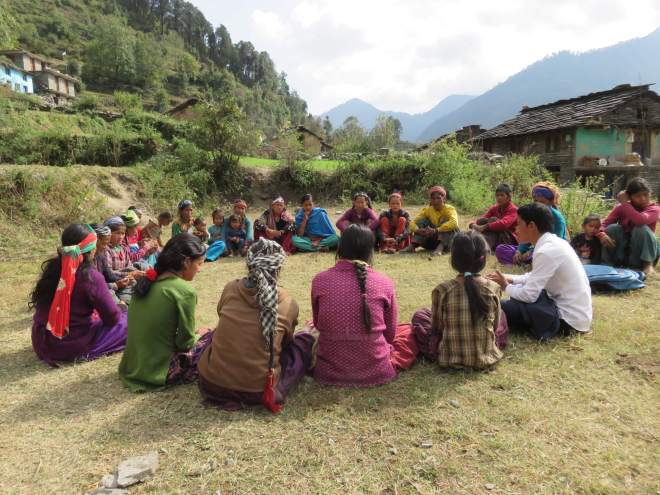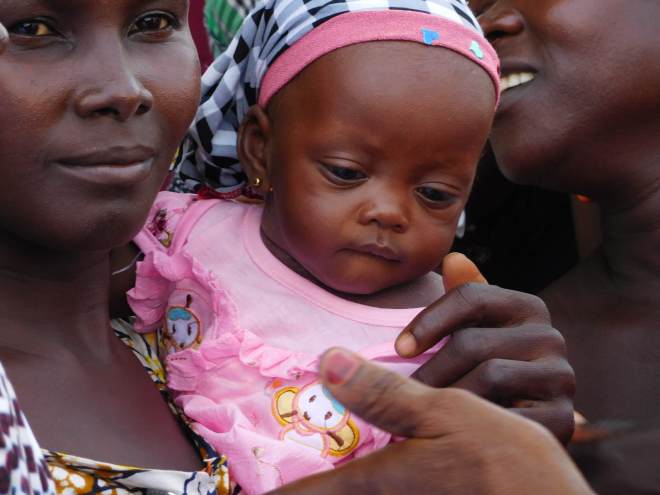Supporting mothers and babies for a healthy start

World Breastfeeding Week
From the Abundant Health Initiative
August 7, 2019 | ATLANTA
World Breastfeeding Week is celebrated during the first week of August each year. The United Methodist Abundant Health Initiative supports mothers in their decision to breastfeed as a vital and practical way to give babies a good start in life. Other ways to help newborn survival rates include ensuring access to health care and supporting mothers’ groups in which women help one another. Abundant Health workers in many places around the world seek to create the right conditions for mothers and babies to thrive from the start. Education starts in the community when volunteers talk to their neighbors and continues for mothers and their children with every prenatal and postnatal visit.
Just getting there in the rural mountains of Nepal
Healthy mothers are more likely to give birth to healthy babies, but for some, access to health care is overwhelmingly difficult. In a remote western region of Nepal, pregnant women must walk for many hours over difficult terrain to reach the nearest health post. They then need to walk home again with a newborn dependent on their breastmilk. The impossible is being transformed by the creation of an emergency fund supported by project leaders, local government and the community.
Bhawana Dangi, from Doti in this region, is a happy beneficiary: “My labor pains started at full term and I went with my husband and mother-in-law to the birthing center at Ghanteshwar. The nurse told us that the baby was in breech position and referred us to a larger facility for a safe delivery, considering the risks. It was far away. I was anxious because we didn’t have enough money to get there. We couldn’t find a solution and felt helpless.
“Suddenly I remembered the emergency fund that I’d heard about at the Healthy Mother’s Group meeting. I asked the nurse if we qualified to borrow money for the journey. She assured us that we could. My husband borrowed NPR 4,000 (U.S. $36) and we rushed to the hospital. Within half an hour of arrival, I safely delivered a healthy baby with the help of a doctor.

“If this interest-free loan hadn’t been available, my baby and I would have been in a dangerous situation. The emergency fund saved our lives. My husband paid back the money within two months. I want to thank everyone who helped to establish this fund to help people in an emergency. I’m also very grateful to the nursing staff of the birthing center and hospital for their prompt support. We’re telling everyone about this amazing provision.”
Gaining community engagement in Liberia and Nigeria
Delove Zangar, program officer for Maternal Newborn and Child Health in Liberia, says that access is still a problem in her area but because of regular visits, mobile clinics in the community and radio messaging, women are gradually coming to understand the importance of seeking care for their own health. “There are now more deliveries and better services at my four health centers because of this regular engagement,” she confirmed.
In rural Northeast Nigeria, Joyce Madanga, the Maternal Newborn Child Health program officer, gathered men in her communities to discuss their wives’ access to care at the health centers. Women need their husband’s permission to use the health center and, sometimes, even their mother-in-law’s consent. She was careful to remind them that services are for everyone – Muslims and Christians. She said, “Men spoke their minds on their willingness to send their wives, especially when they knew that the services were free.”

Madanga also spoke to representatives of the local taxi union, asking if drivers would bring women to health centers without hesitation in the event of an emergency because the health facility would repay the drivers. She noted that more women in her area are breastfeeding than ever before – they are overcoming myths and practical difficulties in the workplace. She facilitated a lively World Breastfeeding Week campaign to promote this vital practice.
Free services in Sierra Leone, Central and East Congo
According to Catherine Norman, the health board coordinator in Sierra Leone, some pregnant women describe the Maternal Newborn Child Health program as lifesaving. In Central and East Congo, mothers with increased access to nutritional rehabilitation programs are seeing their malnourished children grow for the first time in a long while. Community Health Workers are finding these patients through home visits and children are starting to eat nutrient-rich meals created from local foods that mothers can learn to grow and to prepare. Breastfeeding is always promoted, but when mothers are chronically malnourished themselves, even though their bodies will produce for the baby first, their situation is very difficult. Program managers are addressing the situation through food supplementation and education but also through clean water, sanitation, and kitchen and community vegetable gardens.
The World Health Organization recommends that babies be breastfed within one hour after birth and that exclusive breastfeeding should continue for at least six months. After that, nutritious foods should be added to the baby’s diet to complement breastfeeding. Breastfeeding promotes better health for both babies and their mothers. Abundant Health communities are following this recommendation in each country context as closely as it can.
The Abundant Health Initiative (launched in 2017) is a program of The United Methodist Church that aims to reach 1 million children with lifesaving interventions by 2020 through engagement with faith communities and improvement of the quality of antenatal, obstetric, postnatal and child health services in underserved, rural communities.

